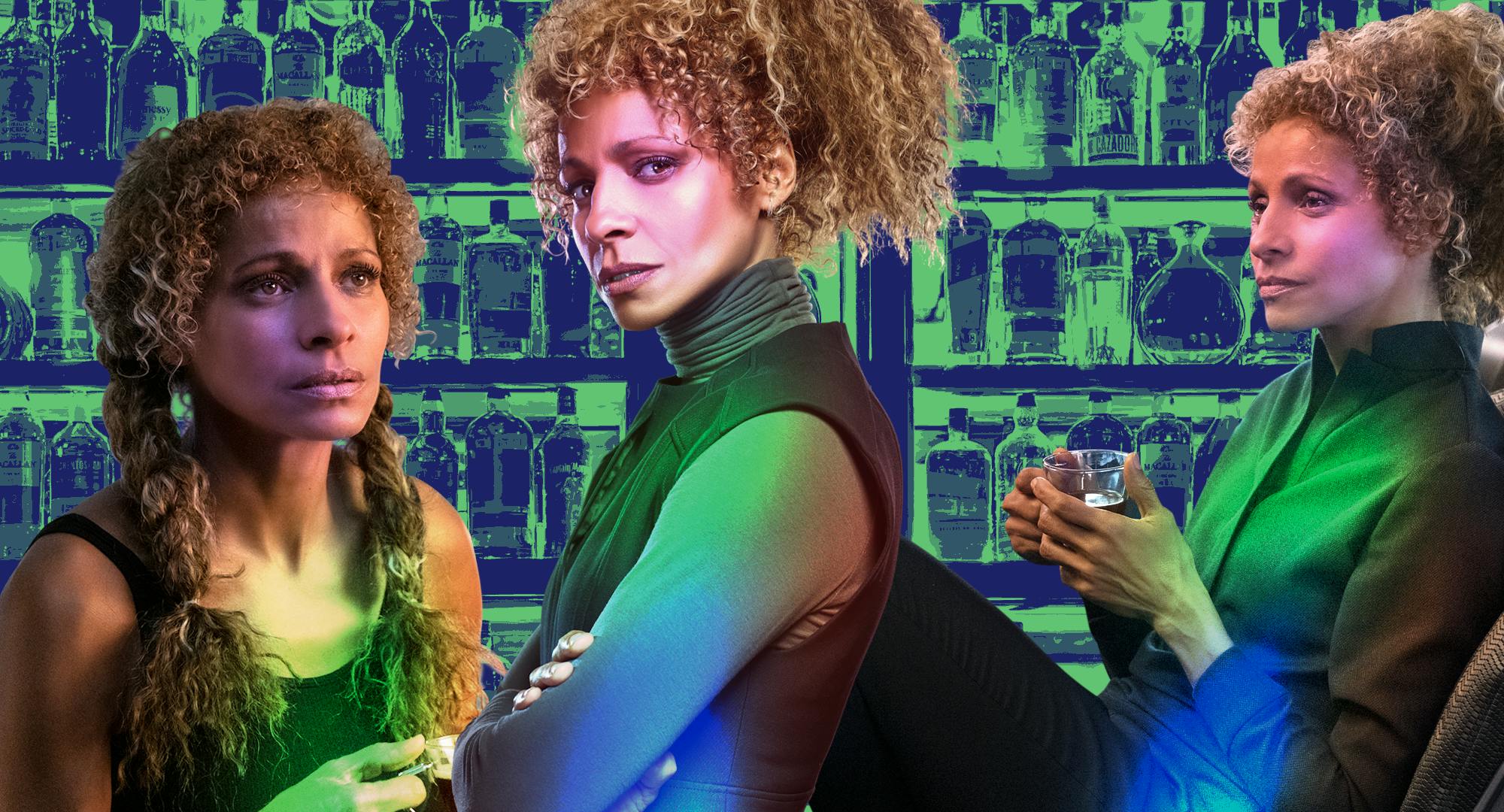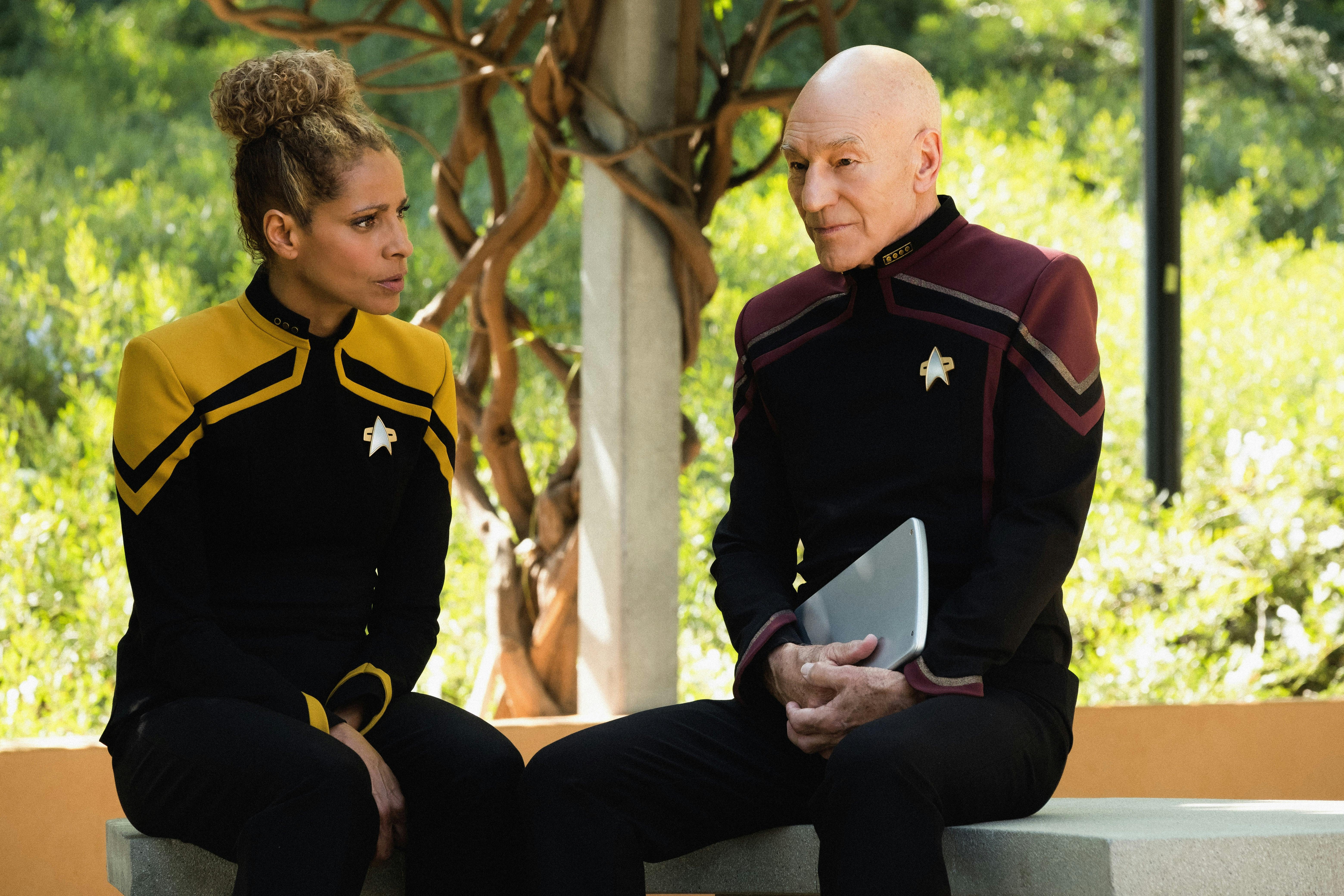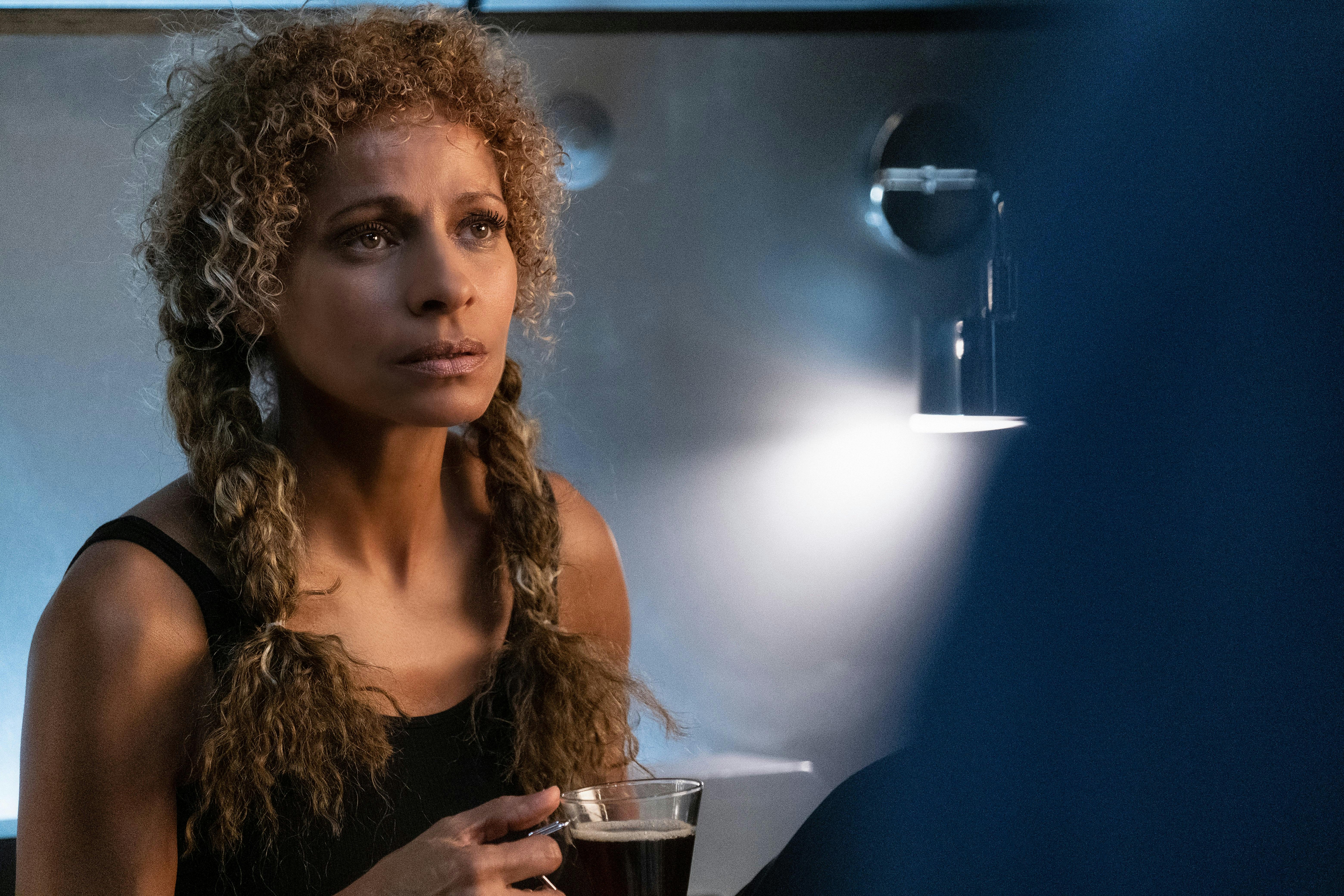Published Apr 20, 2020
I Grew Up With a Mom Like Raffi
The troubled Picard character's demons are all too relateable- but so is her growth.

StarTrek.com
When Raffi first appears in Star Trek: Picard, living in self-exile in the desert with only her orchids for companionship, I felt an immediate kinship with her. Her biting sarcasm and withering looks burn up the screen.
“My life for the past fourteen years has been a slide into humiliation,” she tells a clearly guilt-stricken Picard, then pauses. “And rage.”
All the characters on Star Trek: Picard are searching for redemption in one way or another, but for me, Raffi is the most compelling among them. In a flashback sequence to her time in Starfleet, we discover an ambitious, optimistic woman, stubborn and full of fiery passion. By the time she’s reunited with Picard, she seems wearier, defeated. After all, she lost the job she loved, and Picard -- her closest friend and ally -- at the same time. When Picard makes his last attempt to convince her to join his crew, she’s drinking wine straight from the bottle. She wants to be left alone with her grief, and needs something to help numb it.

StarTrek.com
Raised by an alcoholic mother myself, I am especially attuned to Raffi’s struggle. Though she tried to maintain her relationship with me, it was too painful to watch my mother descend into despair and addiction. After many years without contact, I’ve slowly allowed her back into my life, only because my life is stable enough to weather the drama she inevitably blows my way.
I can't help but see parallels between Raffi and my mom, especially that almost frantic need to make amends. At first, Raffi is hesitant to invest in another "lost cause,” but she sees her former colleague’s quest as an opportunity to repair not just her reputation but the relationships that she left broken in the wake of her meltdown.
When Picard and his crew arrive at Freecloud, Raffi tracks down her estranged son, Gabe, in an attempt to apologize and reconcile with him after she abandons him while planning the Romulan rescue mission. Her son rejects her, reminding her how difficult it was to be her son, effectively slamming the door on the reunion Raffi had hoped for.
I understand Gabe’s impulse to reject his mother’s attempt at reconciliation, to declare that her inability to nurture and protect her child did too much damage and caused trauma to ever be forgiven. He’s now trapped by his anger, too. I couldn’t handle even a brief phone conversation with my mother until I was certain she had achieved relative stability. And like Gabe, I still sometimes experience bursts of anger when I recall how it felt to be cast aside by my mother.

StarTrek.com
Yet, the scene is also a heart wrenching reminder how difficult it is for mothers to find redemption for maternal failures. Though she is fighting the twin demons of guilt and regret, just like my own mother, Raffi is still trying so hard to show up for the people who depend on her. The more I watched the show, the more I found myself rooting for her above every other character.
After that disastrous meeting with her son, Raffi appears on the bridge, sucking on her vape pen, bottle of whiskey in hand. Even in her darkest moments, Raffi proves herself to be a clever, capable woman. She convinces to allow the ship safe passage to the Borg cube. Afterward, when Rios wakes her up from a drunken sleep with a cup of coffee and tells her that Soji (the synth they’ve been searching for) is indeed alive, a spark of excitement flickers behind her eyes.
When Picard sees her next (in the infirmary, where Agnes has lapsed into a coma) Raffi is wearing a clean uniform and her hair is pulled back neatly from her face. She couldn’t reconcile with her son, but she can redeem herself in another way: By supporting her friends and diving into her work, an ethos at the heart of Star Trek. Instead of giving into hopelessness, Raffi finds a way out.
Her journey isn’t easy, and the show doesn’t gloss over the relapses and rock bottom moments that addicts must conquer to survive. Raffi’s struggle is treated with compassion. She’s not a failure for wanting to drink or messing up as a mom. She’s just a woman learning how to manage her pain. She can’t make it disappear, but she can find productive ways to begin to heal.
Raffi’s strength is that she’s a fighter at heart. She’s too stubborn to let her friends go on an adventure without her. So she transforms the anger that led to alcoholism into fuel. She becomes determined to solve the puzzle of the attack on Mars.

StarTrek.com
When she locks herself out of the replicators in a bid to stay sober, I clapped for her, near tears. Later, she consoles a distraught Rios, another former Starfleet officer who is battling his own vicious demons, and this time their roles are reversed: She’s handing him the sobering cup of coffee. What stood out to me is not that his story ultimately proves that her conspiracy theory is actually correct (the Romulans were behind the attack on Mars that condemned their own people). Instead, I saw a glimmer of Raffi at her very best.
As Rios is telling his story, you can see the gears turning behind her eyes. She is smart, inquisitive, compassionate; she always has been. Raffi’s evolution over the course of the show’s first season is a moving homage to complicated mothers like my own, women who deserve redemption, and a chance to reinvent their relationships to their children and chosen families.
The mother that loves me and wants to take care of me hasn’t disappeared either. She’ll be waiting for me, and when I’m ready perhaps we’ll have the reunion Raffi didn’t get. In the meantime, I’m sure Raffi will face more challenges that will test the progress she’s made so far. Only next time, she will face them with her friends behind her, and the knowledge that she doesn’t need alcohol to escape her problems. She can face them head on, and not just survive, but thrive.
Meet the Star Trek: Picard Cast
Elisabeth Sherman (she/her) is a food and culture writer based in Jersey City. Follow her on Twitter at @shermanelis.
Star Trek: Picard streams on Paramount+ in the United States, in Canada on Bell Media’s CTV Sci-Fi Channel and streams on Crave, and on Amazon Prime Video in more than 200 countries and territories.
